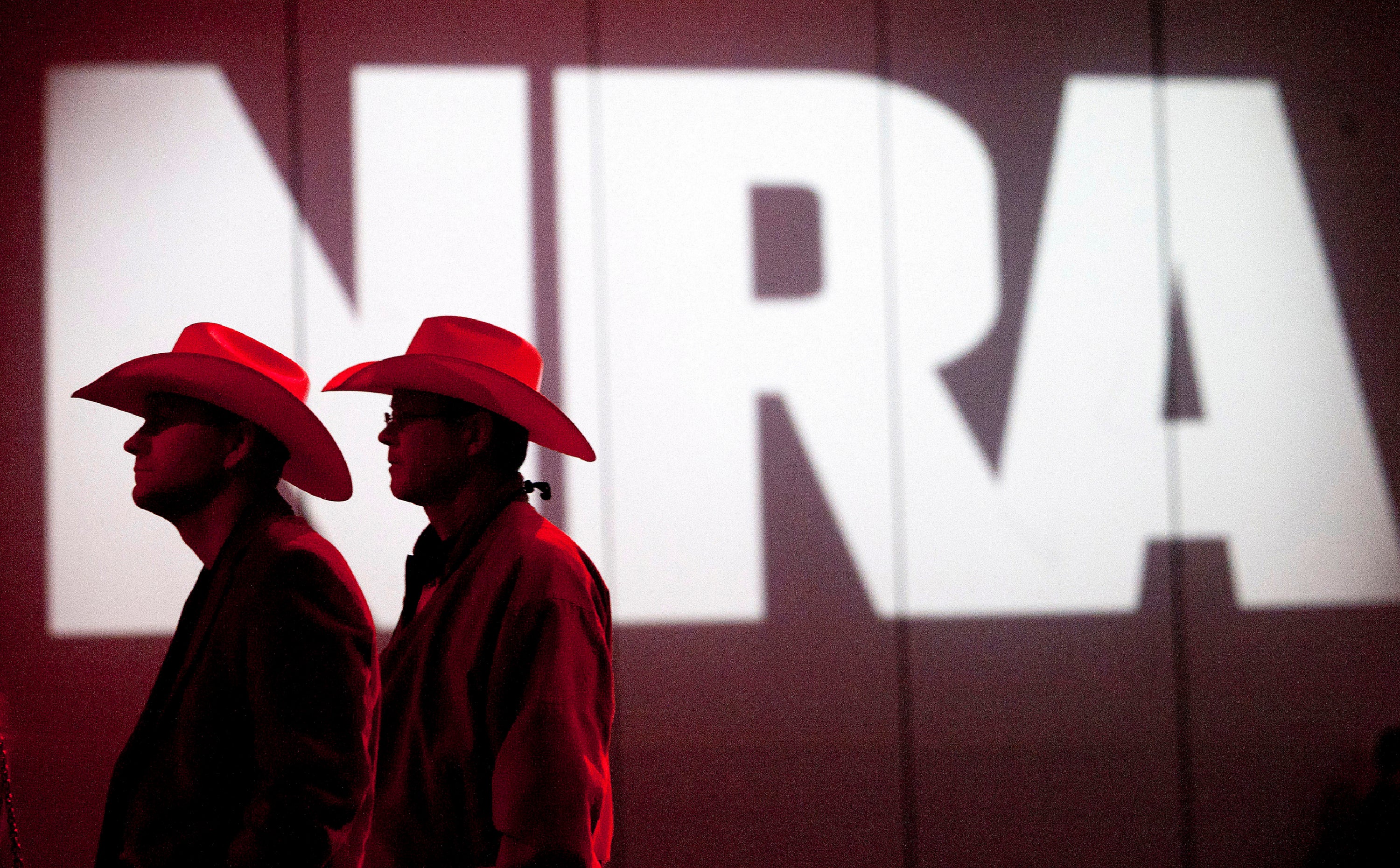NRA lawyer says gun rights group is defendant and victim at civil trial over leader’s big spending
A National Rifle Association lawyer has acknowledged in court that some former executives and outside vendors may have ripped off the influential gun rights group with lavish spending and self-dealing

A National Rifle Association lawyer acknowledged in court Tuesday that some former executives and outside vendors may have ripped off the influential gun rights group with lavish spending and self-dealing.
But, in an opening statement at a New York civil trial scrutinizing the organization’s leadership and finances, Sarah Rogers questioned why the NRA is being forced to defend itself when it’s also a victim and could end up reaping millions of dollars in restitution.
“There can be no question that some individuals, some executives — an ad agency, a travel agent — betrayed (the NRA’s) mission,” Rogers told jurors in the first of several opening statements by lawyers representing the NRA and defendants including its longtime head, Wayne LaPierre, who is resigning Jan. 31.
“The one question is: Why the NRA, the victim, is a defendant in this case?” Rogers asked.
New York Attorney General Letitia James sued the NRA, LaPierre and two of his top lieutenants, in 2020, accusing them of violating the trust of the nonprofit charity’s 5 million members by spending tens of millions of dollars raised through dues and other means on extravagant, unnecessary expenses.
One quirk of the case is that while the NRA is a defendant, the Democratic attorney general is seeking punishment that includes requiring that LaPierre and the two other men pay the organization back.
LaPierre’s lawyer, P. Kent Correll, defended the executive vice president and chief executive officer as having served the NRA “well and honorably and honestly for 44 years,” the last three decades as its head. Correll justified LaPierre’s expenses as vital to his job promoting the organization’s gun-rights agenda. LaPierre has repaid some bills to comply with organization guidelines and tax laws, Correll said.
“He saw his duty as broader than sitting in an office at NRA headquarters reviewing contracts and invoices,” Correll told jurors, portraying him as something of a politician crisscrossing the country for chicken dinners with gun owners and retreats with Hollywood celebrities he wanted to court as organization allies.
LaPierre, 74, is accused of charging the organization more than $11 million for private jet flights despite the NRA’s policy of only covering the cost of coach-class airfare. Correll said the charter flights were a security requirement because he was receiving death threats and that others in the organization, including the late actor and former NRA president Charlton Heston, flew on private jets. Rogers said LaPierre paid the NRA for the cost of travel for family members who accompanied him on trips.
LaPierre is also accused of taking lucrative gifts from people doing business with the NRA, including trips to Bahamas, Greece, Dubai and India and stays on a 108-foot (33-meter) yacht from a marketing firm that had $135 million in contracts with the NRA.
To avoid scrutiny, state lawyers said, LaPierre routed expenses through a vendor, filed doctored invoices, and retaliated against insiders who questioned his spending. A lawyer for a co-defendant, former NRA Chief Financial Officer Wilson Phillips, said LaPierre’s full travel plans weren’t listed on internal records because there was “a real and legitimate concern” that a leak could jeopardize his safety.
LaPierre is expected to testify, possibly as early as this week, along with Lt. Col. Oliver North, the former NRA president who spoke out against LaPierre and lost in a bid to have him ousted from the organization.
Phillips' lawyer, Seth Farber, said in an opening statement that his client “never did anything intentionally to harm the NRA.” A lawyer for the other co-defendant, NRA general counsel John Frazer, said his client worked to improve the organization’s policies and never got pushback from LaPierre. He suggested James, who favors gun control measures, was going after the organization to fulfill a campaign promise.
Another ex-NRA executive turned whistleblower, Joshua Powell, settled with James’ office on Friday. He has agreed to testify at the trial, pay the NRA $100,000 and forgo further nonprofit involvement.
“The board set good rules. Some individuals deviated from those rules. That’s what the evidence in this case will show," Rogers said, adding: "Mr. Powell and Mr. Phillips are long gone. Good riddance.”
James had sought to shut the NRA down as punishment, but a judge rejected that. Now, in addition to restitution, she is asking that an independent monitor be appointed to oversee the organization’s finances. She also wants LaPierre, Phillips and Frazer banned from serving in leadership positions of any charities conducting business in New York — such as accepting donations from state residents or having them as members. That would effectively bar them from any NRA involvement.
LaPierre submitted his resignation to the NRA board on Friday. The organization’s lawyers wrote in a court filing that he has chronic Lyme disease. Correll told jurors that LaPierre remained in charge “until his health made it impossible for him to continue.
"He held on as long as he could until he was told to stop by his doctor,” Correll said.
LaPierre has no arrangements or agreements with the NRA regarding his resignation or severance and will not hold any position with the organization nor receive any further compensation after his last day, Jan. 31, its lawyers said.
Although state lawyers allege in their lawsuit that LaPierre previously arranged a lucrative post-employment package for when he exits from the NRA, the organization’s lawyers said that isn’t the case. The NRA has no superseding employment or post-employment agreements with LaPierre, they said.
Bookmark popover
Removed from bookmarks